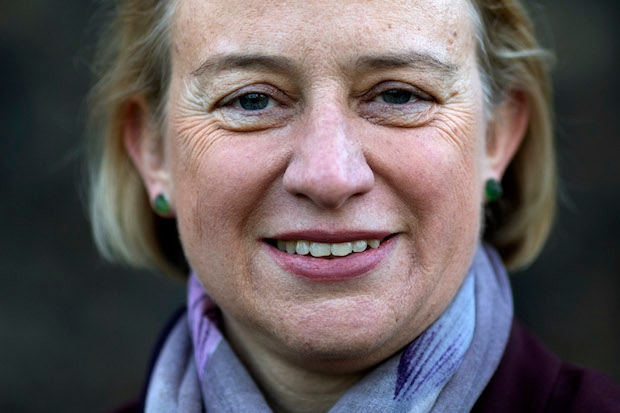To be fair to Natalie Bennett, she took the rather admirable step of apologising on the Daily Politics for being so woeful in her disastrous interview with Nick Ferrari this morning. But the whole episode tells us a lot about how the Green party views its appeal to voters. Yes, yes, it’s embarrassing that a party leader boasting about a flagship housing policy ended up sitting in the most painful silence imaginable while she tried to think of how that policy would actually, you know, work. But clearly if she thought that knowing the details of the policy would be important, she might have checked the details before walking into the LBC studio with Nick Ferrari. Clearly she did not.
Today the party unveiled its campaign poster, which reads ‘Standing for the Common Good’, and both Bennett and Caroline Lucas spoke of the need for a ‘clear, strong Green voice’. The party unveiled six key themes:
– Greens will rebuild our economy so everyone gets a fair share.
– Greens will put the public at the heart of the NHS.
– Greens will ensure everyone has a secure, affordable place to live.
– Greens will take action on climate change to protect our planet.
– Greens will invest in and create a public transport system to be proud of.
– Greens will ensure every young person that wants to can access quality education.
Bennett in particular described the Greens as representing ‘the politics of hope’:
‘Something profound is happening in British politics. The old way of doing things is falling apart as the politics of hope triumphs over the politics of fear. The Green Party wants to create a political system that puts the public first and we believe we have the means to achieve that ambition.’
That line ‘the politics of hope triumphs over the politics of fear’ is one every politician probably practises in the mirror at one point or another, but it is particularly telling of the Greens’ strategy, which appears to be to offer the politics of hoping that something is possible, without the politics of things that are actually possible. Thus it is fine to pledge to build 500,000 social homes, and hope that it is possible to do so, without being fully confident that it can be done. So long as those susceptible to voting Green hear the words ‘500,000 social homes’ along with some platitudes about the ‘Common Good’, then it doesn’t matter whether the policy would actually work.
Of course, it’s easy to sneer at this when the main parties are throwing large piles of paper at one another that they claim are ‘dossiers’ showing their opponents have got their sums wrong. But it’s clearly an effective strategy because the Greens are chipping away at Labour and Lib Dem votes, they are polling well, and they are gaining members. And Labour cannot offer much in response because as an ‘Establishment’ party, it has to cost its policies, which means the Greens will always offer more in the ‘politics of hopefulness’ stakes. In that position, why bother doing the sums?







Comments